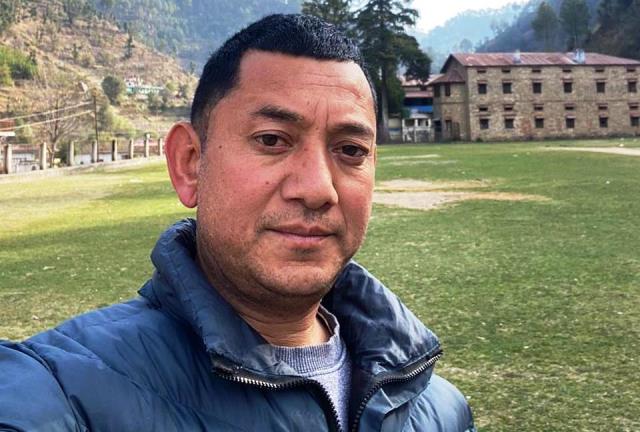Ravi Nayal, a farmer in Uttarakhand, says his orchards, once lush and loaded with fruitage, are now parched and struggling to survive. His story:
In the serene hills of Ramgarh, Uttarakhand, a place once celebrated as the ‘Fruit Bowl of India’, life for a farmer like me has turned into a relentless battle. Our land, famous for its lush orchards of apples, peaches, plums, and apricots, is now facing adverse impact of climate change. Over the past two years, we haven’t seen any snowfall, and the rain has been heartbreakingly scarce, leading to an unprecedented drop in our produce.
Winter passes without the comforting blanket of snow that we once took for granted. Snowfall is essential here; it replenishes our water sources and nurtures the soil. Without it, our trees suffer. Their natural cycle is disrupted, making them bloom erratically and bear less fruit. The vibrant blossoms that once painted our landscape are now few and far between, and the yield is a mere shadow of what it used to be.
This year’s rains were erratic and insufficient. The monsoon, which we depend on to irrigate our fields and refill our water reservoirs, let us down. Streams and springs, which once gushed with life, now barely flow. Our orchards, once lush and green, are now parched and struggling to survive. The soil, deprived of moisture, cracks under the relentless sun.
The impact on our produce is heartbreaking. Our apples, once plump and juicy, are now small, misshapen, and lack their usual sweetness. Peaches and plums, our pride, are now a rare sight. Even apricots, which thrived in our unique climate, are dwindling. The title “Fruit Bowl of India” feels like a distant memory, a legacy slipping through our fingers.
ALSO READ: ‘Saving Hills from Human Influx is a Necessity’
Our income, which heavily relies on selling our fruits, has taken a severe hit. Market prices don’t make up for the reduced quantity and quality of our produce. The cost of living keeps rising while our earnings shrink. Many of us have had to take out loans to sustain our families, and the debt burden is crushing.
Our community, once vibrant and hopeful, now grapples with despair. We gather at the local tea stalls, sharing stories of hardship and offering each other what little support we can. The younger generation, witnessing our struggles, is increasingly reluctant to continue farming. They’re leaving for cities, seeking better opportunities, leaving behind an aging population of farmers who can no longer cope with the changing times.
Government assistance, though appreciated, often falls short. We need sustainable solutions to help us adapt to the changing climate. Better irrigation systems, access to drought-resistant crop varieties, and training in modern agricultural practices are crucial. There is also a dire need for greater awareness and action on climate change to prevent further degradation of our environment.
As a farmer in Ramgarh, I watch the seasons pass with a heavy heart, knowing that each year brings more uncertainty. The land that once provided us with abundance now struggles to sustain us. Our fight is not just for survival but for the preservation of a heritage, a way of life that has defined our community for generations. We hold on to hope, for it is hope that sustains us, even as the world around us changes in ways we never imagined.
As told to Deepti Sharma
For more details visit us: https://lokmarg.com/
